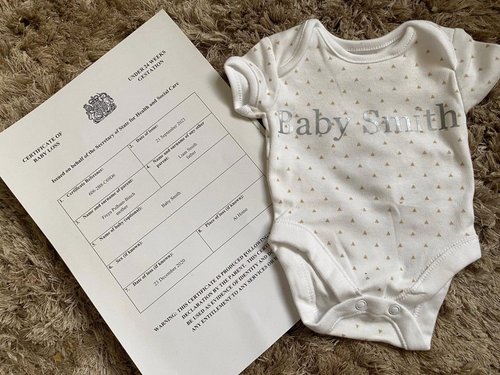Loved, lost and acknowledged
Euryl Howells, Senior Chaplain to the Hywel Dda Health Board, commends the introduction of new Baby Loss Certificates
Often you don't know you need something until it is offered. That is the advantage of the Government's new baby loss certificates.

Since February 2024, people who have lost a baby before 24 weeks of pregnancy have been able to apply for a certificate in memory of their baby. A baby delivered either before or after 24 weeks gestation who shows signs of life but subsequently dies within 28 days is registered as a neonatal death.
Pregnancy and birth have always involved medical risk. A baby’s death is something no parent should have to experience but in an imperfect world we will always encounter these tragic moments. It is a crash barrier experience not a punishment.
Parents alarmingly report that almost no one understands their anguish as a part of them disappears. They are ‘wounded and pierced’ despite presences, the suffocating silences, the hidden loss.
You must walk a mile in the moccasins to know the myriad of pastoral, spiritual and religious implications. The tragedy needs acknowledgement. In my 22 years in healthcare, hopefully chaplains’ crisis ministry is a concrete sign of the ultimate love of God when meaning, purpose and self-worth disappear.
Processing pregnancy and neonatal loss is complicated; the potential ambiguity regarding status of parenthood being disenfranchised, incomplete and incapable.
We accredit and sanction parents to consider and construct their own act of affirmation and remembrance. We explore liturgy, ritual and ceremonies and attentively listen, to hopes and dreams, fears and concerns, the laughter and pain. Chaplains, in contrast to the rotation of nurses and doctors, are constant. No medical and nursing interventions probe whether naming and/or blessing ceremonies, or christening if possible is appropriate to imprint and mark a life that hasn’t survived.
Christian festivals of Christmas and Easter show how God gives hope in any adversity. God is in the hardship, grief and illness, the storms of this world – hope finds a way. Hope is not an isolated, individual experience – it is not abstract or theoretical. Hope happens when people come together in the most extraordinarily difficult times. Even if the parents don’t have a faith if you serve with openness to God’s suffering presence in his or her suffering, to me as a Chaplain it is a channel of divine healing. From the example of Jesus, we are called to see the ministry of care through to completion.